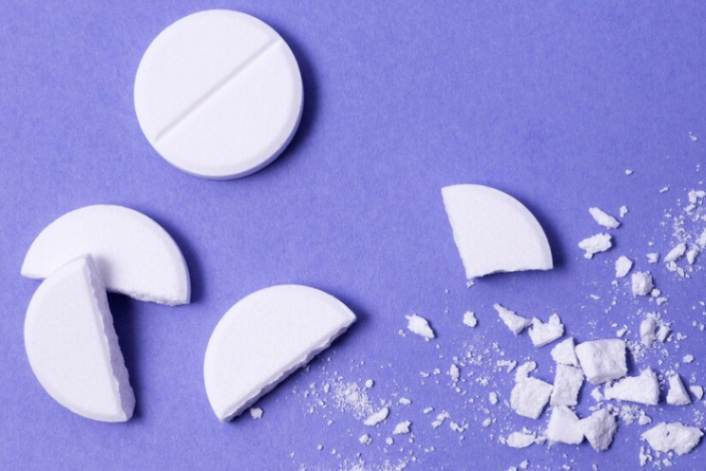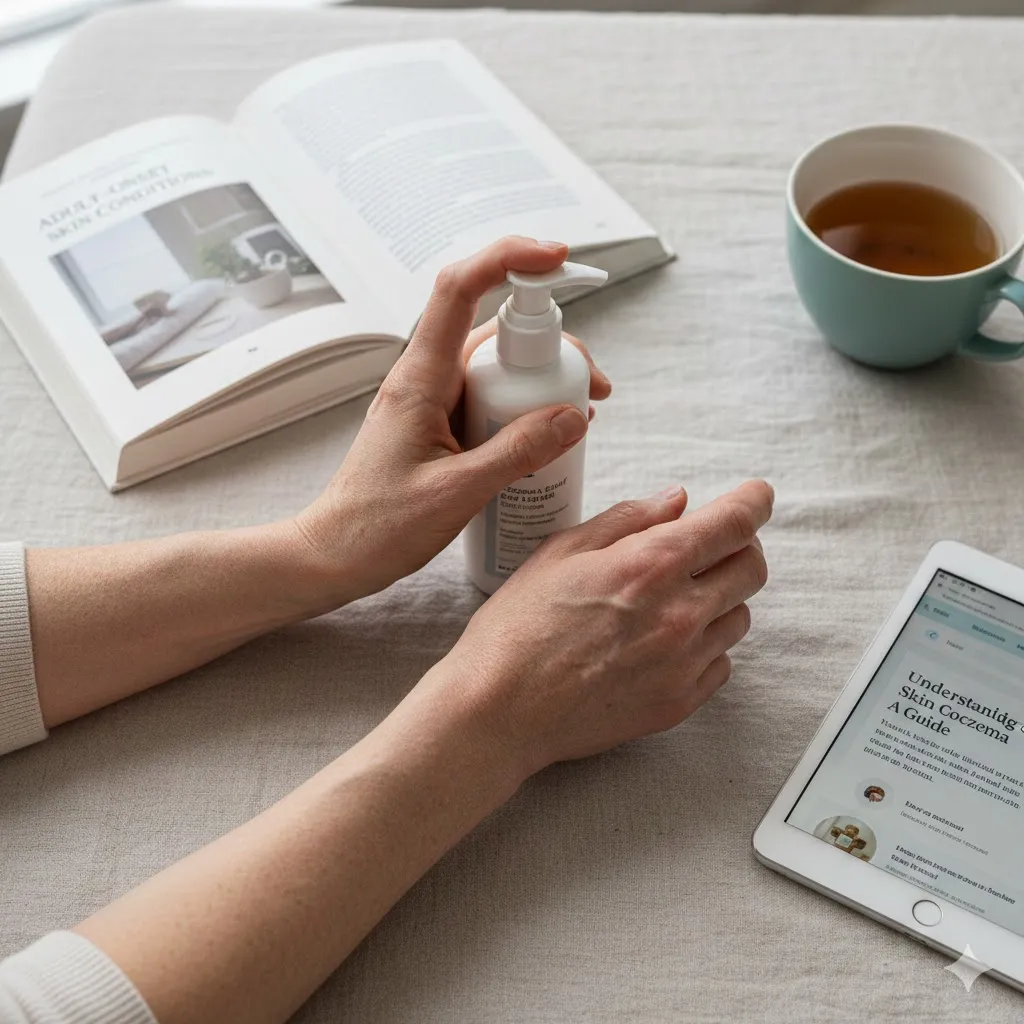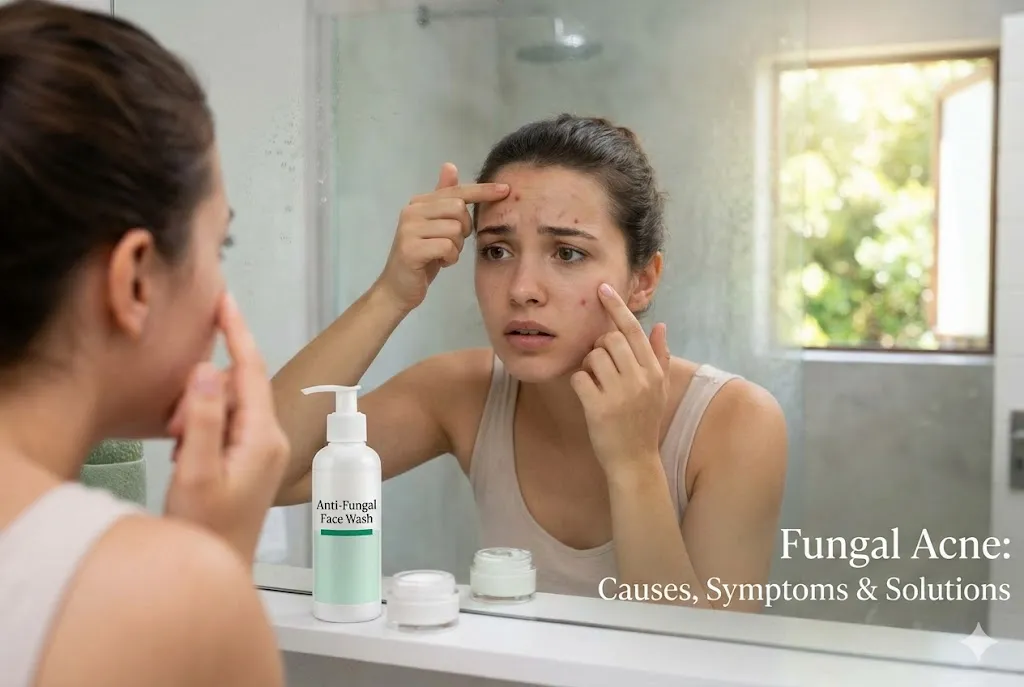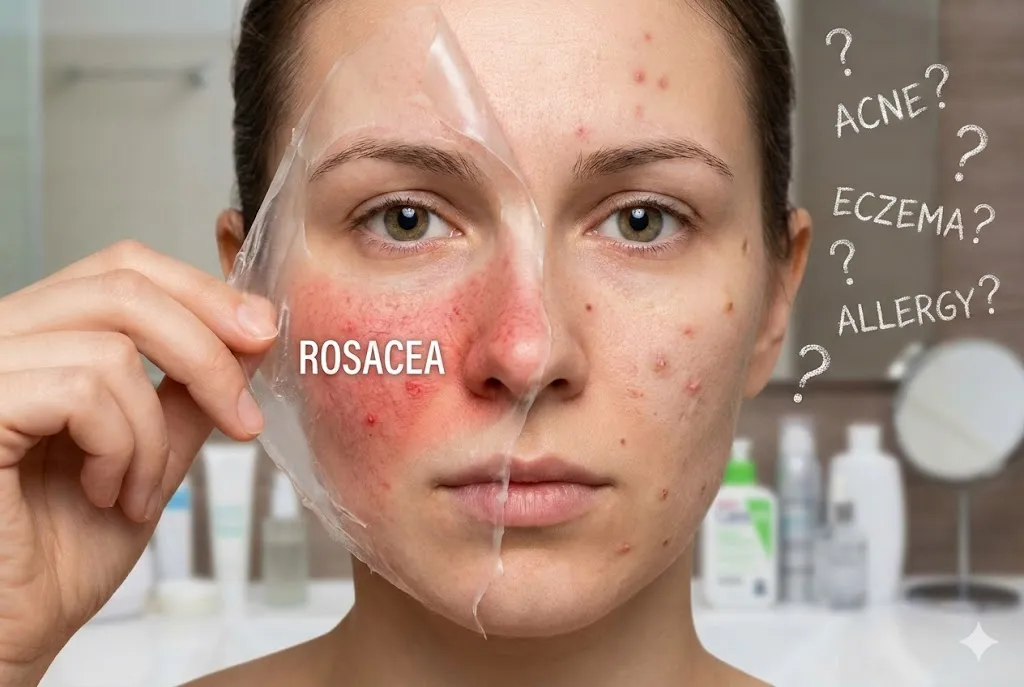Dealing with consistent flakes, itching, and discomfort of psoriasis? This chronic skin condition impacts millions worldwide, but with the right treatment and lifestyle changes, you can receive lasting relief from symptoms. But, "How to cure psoriasis permanently? Is there any possibility? Let's explore the blog for the answer!
Is It Possible to Cure Psoriasis Completely?
How to manage psoriasis for long-term relief? No, there is no permanent medical treatment for psoriasis. However, many people can achieve long-term relief from symptoms through a combination of medical care, lifestyle changes, and complementary therapies.
How to Cure Psoriasis Permanently:
These treatment options can help manage psoriasis symptoms:
Medical Treatments:
The dermatologists recommend the following treatments to manage the symptoms and reduce their worsening:
1. Topical Treatments
These creams or ointments are applied directly to the affected area. They work on psoriasis by rapidly slowing down the growth of skin cells, relieving inflammation, and removing flakes or scales.
-
Corticosteroids (anti-inflammatory)
-
Vitamin D3 ointment
-
Vitamin A/retinoid creams.
-
Salicylic acid
-
Steroid creams
-
Medicated lotions or shampoos
-
Moisturizers for dry skin
2. Phototherapy
-
Involves exposure to the specific types of UV light, especially narrowband UVB (NB-UVB) light, that slows the growth of affected skin cells.
-
Also, it helps treat the condition by suppressing the immune system and alleviating inflammation.
3. Systemic Medications
-
These medications work on the entire body and are often recommended for moderate to severe cases.
-
They work by changing the growth of skin cells, reducing inflammation, and suppressing the overactive immune system.
-
Examples include:
-
Methotrexate
-
Cyclosporine
-
Biologics, like Humira, Cosentyx, and Stelara
Lifestyle Changes:
Here are the lifestyle changes for psoriasis that should be followed strictly:
-
Consume a Healthy Diet: Consume an anti-inflammatory diet (rich in omega-3 fatty acids, fruits, and vegetables to reduce inflammation. Avoid red meat, processed foods, gluten, and alcohol, as they worsen symptoms.
-
Manage Stress: Stress can worsen symptoms, so practice stress-relieving techniques to manage stress. Yoga, deep breathing exercises, and meditation can help relieve stress.
-
Avoid Triggers: Avoid exposure to triggers such as infections, smoking, cold weather, harsh soaps, and other irritants that can induce psoriasis.
-
Moisturize Regularly: Use fragrance-free and hypoallergenic moisturizers to keep the skin hydrated and get rid of flakes.
-
Get Adequate Sleep: Aim to get 7-9 hours of sleep to relieve inflammation and stress and improve overall health, which can reduce the effects of psoriasis.
-
Exercise: By reducing inflammation and boosting immune function, exercise can contribute to managing psoriasis symptoms.
Complementary Therapies
If you are struggling with self-esteem problems associated with psoriasis, these therapies can be helpful:
1. Acupuncture:
-
Reduces the itchiness, thickness, and scales of skin and relieves anxiety and stress (which trigger psoriasis).
-
Increases blood flow to the affected area and improves the immune system, which relieves inflammation.
2. Turmeric Supplements
-
Contains curcumin, which has potent anti-inflammatory effects that help suppress an overactive immune system.
-
Also, they relieve inflammation, which eases psoriasis symptoms like swelling, redness, and plaque formation.
3. Dead Sea Salt Baths
-
Softens the scales and hydrates the skin, which makes it easy to clear the dead skin.
-
Magnesium and bromide in salt have soothing and anti-inflammatory effects, helping reduce redness, itching, and discomfort.
4. Omega-3 Fatty Acids
-
Research shows that omega-3 fatty acids like fish oil can improve symptoms of psoriasis by reducing inflammation.
-
Also, they enhance the function of the skin barrier and gradually decrease the severity of redness and scaling.
Natural Remedies for Psoriasis
These natural remedies can also help manage the mild symptoms of psoriasis:
1. Apple Cider Vinegar
-
Removes the upper layer of dead skin cells, makes the psoriasis appear slightly scaly, and relieves itchiness and redness.
-
How to use: Add 1-2 cups of ACV in a lukewarm water and soak the affected area for 15 to 20 minutes.
2. Spending outdoors or in the sun
-
By providing natural UVB rays, sunlight can slow down the quick growth of affected skin cells.
-
How to do: Get sunbathing for 5 to 10 minutes (early in the morning or late evening) daily.
3. Turmeric
-
Contains curcumin which has antioxidant and anti-inflammatory properties, helping prevent worsening of the symptoms by calming the overactive immune system.
-
How to use: Take curcumin supplements under a doctor's guidance or drink turmeric milk.
4. Tea tree oil
-
The anti-inflammatory and antiseptic properties of tea tree oil help treat inflammation, dryness, and itching.
-
How to use: Mix it with a carrier oil like olive or coconut oil and apply to the affected area once a day. Do a patch test first.
5. Soaked oats
-
Antioxidants and beta-glucans in soaked oats help relieve inflammation, soothe itching, and moisturize the affected skin.
-
How to use: Soak the affected area for 15 to 20 minutes in a warm bath that contains finely ground oats. You can also apply oatmeal paste to the affected area for 10-15 minutes.
6. Aloe vera
-
The anti-inflammatory, cooling, and skin-healing effects of aloe vera aid in relieving redness and itchiness.
-
How to use: Apply organic aloe vera gel to the skin 2 to 3 times every day.
7. Capsaicin
-
Blocks the nerve signals that contribute to pain and itching and alleviates inflammation.
-
How to use: Apply capsaicin-containing creams on the skin, 1 or 2 times a day. However, always do patch tests first.
8. Probiotics
-
Improves gut health, which helps regulate the immune system and may relieve systemic inflammation.
-
How to use: Consume fermented foods such as kimchi, yogurt, or kefir. Try probiotic supplements with strains like Lactobacillus.
9. Wet dressings
-
Keeps the skin hydrated and moisturized, reduces inflammation, and also helps with better absorption of topical creams and ointments.
-
How to use: Apply prescribed cream or ointment to the skin, wrap it using a wet cloth or gauze, and then cover it with a dry wrap. Leave it for hours or overnight, as recommended by a doctor.
10. Avoid alcohol and smoking
-
A study shows that excessive intake of alcohol can lead to severe symptoms of psoriasis. Also, it can reduce the effectiveness of the treatment.
-
In addition, quit smoking, as it can increase the severity of symptoms associated with psoriasis.
How to Prevent Psoriasis?
Though psoriasis is not completely preventable, alleviating the triggers can manage the symptoms and flare-ups. Consider these preventive tips:
Maintain a Healthy Lifestyle:
Considering these lifestyle changes can help reduce inflammation and prevent the worsening of symptoms:
-
Consume a balanced diet, like whole grains, fresh fruits, lean proteins, fatty fish, and vegetables.
-
Exercise regularly for about 30 minutes.
-
Get adequate sleep
-
Manage stress through meditation and yoga
Follow Good Skin Care:
The following skin care routine can help prevent dryness and worsening of symptoms:
-
Keep skin moisturized by applying moisturizer and using a humidifier during cold or dry weather.
-
Use gentle and fragrance-free soaps and avoid harsh chemicals.
-
Take a warm bath and avoid hot baths
-
Protect the skin against cuts, bug bites, and scrapes, as they worsen symptoms.
Avoid Triggers:
Avoiding triggers can alleviate the risk of worsening symptoms:
-
Limit smoking and alcohol.
-
Avoid substances that can trigger allergic reactions.
-
Protect the skin from extreme sunlight. Use sunscreen and wear full-sleeved clothes when outdoors.
-
Seek medical help for infections, as they are big triggers.
Final Thoughts
So, how to cure psoriasis permanently? There is no permanent treatment; some topical treatments, natural therapies, and lifestyle changes can manage the symptoms. Also, some home remedies can be helpful. However, also consult a dermatologist before using any home remedies and therapies, especially if you have other skin conditions or are on other medicines, as they may cause side effects.
For now, you should focus on all the prescribed medications that can effectively relieve the symptoms of psoriasis.
Frequently Asked Questions
What are the medicative options for injected medicines?
Medicative medication injection options are steroids, retinoids, biologics, methotrexate, cyclosporine, and other drugs.
What is the fastest way of curing psoriasis?
There is no fastest way. However, creams and ointments, light therapy, and oral and injected medications can help stop skin cells from overgrowing and remove scales.
Is psoriasis 100% curable?
No, it can't be cured 100%, and it may occur again. However, it can be managed with some topical treatments, light therapy, and medicines to reduce the symptoms.
Is psoriasis contagious?
As psoriasis is an autoimmune condition, it can't spread from one person to another through any means, like physical touch or sharing personal items.
How do you stop psoriasis from spreading?
It can't be prevented from spreading. But with over-the-counter or prescription topical medicines, you can ease the symptoms.
Does psoriasis worsen with age?
No, it typically does not get worse with age. However, some age-related issues, like a weak immune system, thinner skin, and stress, can affect its severity. This can contribute to more severe psoriasis.

Reviewed by







